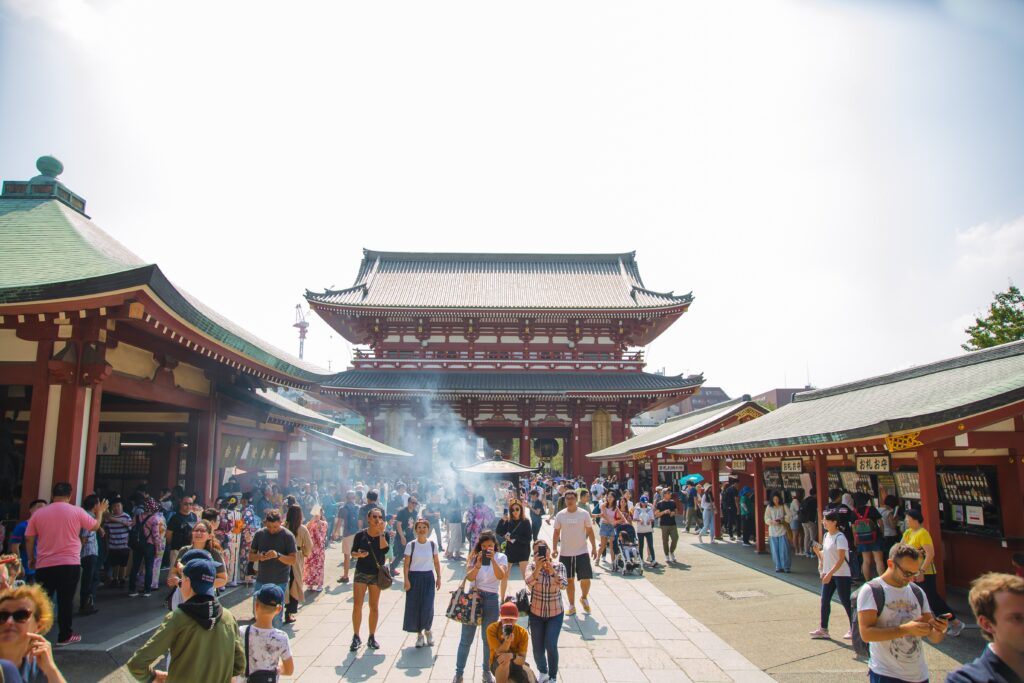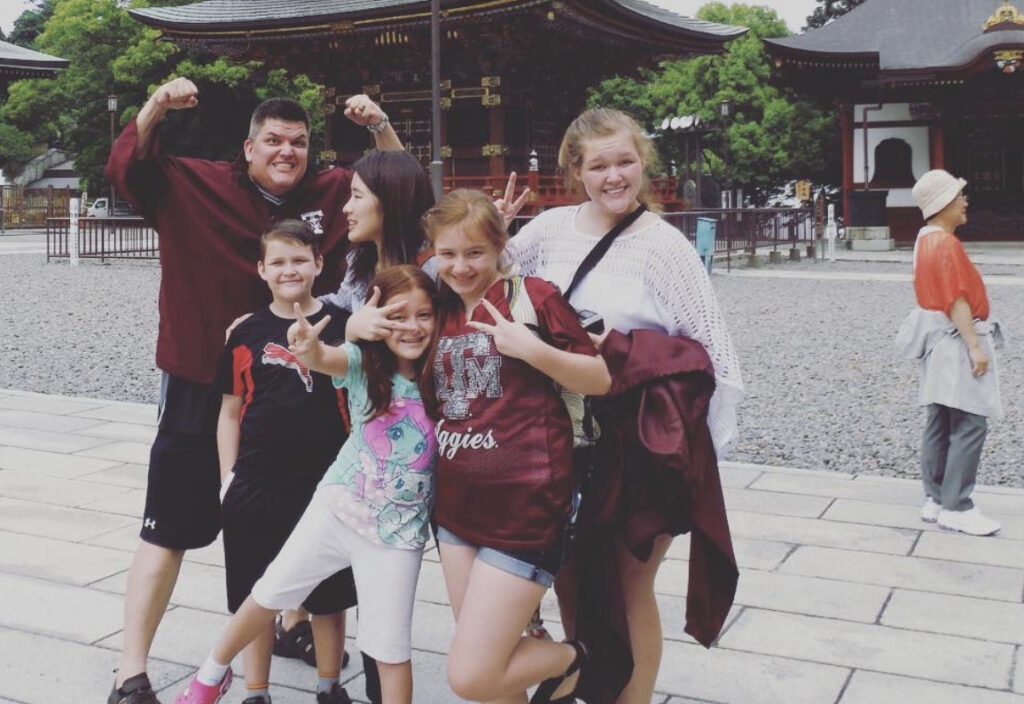In the vast tapestry of human languages, there are certain words that encapsulate profound concepts. “Ganbatte” is one such term, originating from the rich cultural fabric of Japan. At first glance, it might appear to be a straightforward expression of encouragement, often translated as “Good luck!” or “Do your best!” However, beneath the surface lies a much deeper meaning, one that is often misunderstood.
Misconceptions about “Ganbatte” abound, with some mistakenly perceiving it as a mere wish for good fortune, like throwing a penny in a wishing well and crossing your fingers. Yet, the heart of Ganbatte lies not in luck but in the tenacious spirit of perseverance. It’s about more than just a stroke of fortune; it’s about the relentless pursuit of excellence and the unwavering commitment to doing your best, even in the face of adversity. In this exploration of the true essence of Ganbatte, we’ll delve into its origins, its cultural significance, and how it can serve as a guiding light in our journey through life. Join us on this enlightening journey as we uncover the heart of perseverance and the beauty of embracing imperfection. Ganbatte!

The Origins of Ganbatte
To truly understand the essence of “Ganbatte,” we must venture into its cultural birthplace, Japan. This term has deep roots in Japanese society, reflecting a mindset deeply ingrained in the country’s history.
Originating from the Japanese verb “ganbaru,” which means “to persist” or “to do one’s best,” Ganbatte is a concept that has grown organically within the Japanese culture. It’s rooted in the principles of diligence, determination, and resilience that have guided the Japanese people for centuries.
The use of “Ganbatte” is believed to have gained popularity during the Edo period (1603-1868), a time marked by significant social and cultural changes in Japan. People living during this era faced various challenges, from political instability to natural disasters. In response, the spirit of perseverance and resilience became highly valued.
What’s fascinating is that Ganbatte not only embodies the Japanese commitment to hard work but also reflects their profound respect for effort. In Japanese culture, it’s not just about the end result but the journey and dedication put into achieving it.
Interestingly, Ganbatte has transcended language and borders, finding its way into the daily vocabulary of many around the world. Its popularity is a testament to the universal appeal of the values it represents: determination, resilience, and the unwavering commitment to doing one’s best, regardless of the outcome.
As we delve deeper into the heart of Ganbatte, it becomes clear that its roots run deep in Japanese culture and offer profound wisdom that transcends linguistic boundaries. It’s not just a word; it’s a philosophy, a way of life, and an inspiration to strive for excellence in all that we do.

Ganbatte: More Than Luck
Misconceptions often cloud the true meaning of Ganbatte. One of the most common misunderstandings is that it’s merely a Japanese way of wishing someone good luck. While Ganbatte is indeed an expression of encouragement, it runs far deeper than luck alone.
To clarify, Ganbatte is not about relying on luck to achieve your goals. It’s about fostering a mindset and attitude deeply rooted in effort, perseverance, and unwavering commitment. This concept emphasizes that success isn’t dependent on chance but on your dedication to doing your very best, regardless of the outcome.
Several well-known figures, including celebrities, have expressed their admiration for the Ganbatte spirit and have offered their own interpretations of it. One such celebrity is the renowned martial artist and actor Bruce Lee, who famously said, “Do not pray for an easy life; pray for the strength to endure a difficult one.” This sentiment echoes the essence of Ganbatte, emphasizing the importance of resilience and determination in the face of challenges.
Another example is the legendary musician Bob Marley, who encouraged us to “Emancipate yourselves from mental slavery; none but ourselves can free our minds.” In this quote, Marley echoes the Ganbatte mindset, emphasizing that true liberation and success come from within, driven by one’s effort and determination.
These examples illustrate that Ganbatte is not a matter of luck or external factors, but rather an internal commitment to doing your very best, regardless of the circumstances. It’s a philosophy that transcends cultures and languages, resonating with individuals from all walks of life who value the virtues of hard work, perseverance, and the pursuit of excellence.
So, the next time you hear or say Ganbatte, remember that it’s not about luck but a profound expression of encouragement and a reminder to give your absolute best effort, no matter the challenges you face. Ganbatte!
Embracing Imperfection
In a world that often celebrates perfection, Ganbatte offers a refreshing perspective—a reminder that it’s okay to be imperfect, to stumble and fall, and to make mistakes along the way. The essence of Ganbatte lies in the pursuit of doing your best, not achieving perfection.
In Japanese culture, there’s a deep appreciation for the concept of “Wabi-Sabi,” which celebrates the beauty of imperfection, impermanence, and the natural cycle of growth and decay. This concept aligns harmoniously with Ganbatte, emphasizing that the path to success is filled with learning experiences, setbacks, and moments of imperfection.
Striving for perfection can often hinder progress. The fear of making mistakes or not meeting impossibly high standards can paralyze individuals, preventing them from taking risks or pursuing their goals. In contrast, Ganbatte encourages people to embrace their imperfections as part of the journey.
Consider the story of a young artist who, inspired by the principles of Ganbatte, decided to embark on a challenging project. She was determined to create a masterpiece, pouring her heart and soul into every stroke of the brush. But as she worked, she realized that her creation was far from perfect. There were flaws, imperfections, and moments where she had to start over.
Frustration set in, and she was tempted to give up. However, she remembered the spirit of Ganbatte and its emphasis on perseverance. Instead of dwelling on her perceived imperfections, she continued to paint, learn, and grow. Over time, her work improved, and her art became a beautiful reflection of her journey, complete with the imperfections that made it uniquely hers.
This story illustrates how Ganbatte encourages us to embrace imperfection and view it as an integral part of growth. It’s a reminder that the pursuit of excellence is not about flawless execution but about the dedication to constant improvement, even in the face of imperfection.
In a world that often pressures us to be flawless, Ganbatte inspires us to be resilient, to keep striving, and to understand that it’s through our imperfections that we discover our true strength and potential. So, as you embrace the Ganbatte mindset, remember that imperfection is not a limitation; it’s an essential part of your remarkable journey.

Doing Your Best
At its heart, Ganbatte encapsulates the notion of doing your best in every aspect of life. It’s not about achieving perfection, outperforming everyone else, or seeking external validation; rather, it’s about giving your all, regardless of the circumstances or outcomes.
Imagine a student preparing for a crucial exam. With the Ganbatte mindset, their focus is not solely on securing the highest grade but on studying diligently and putting forth their best effort. They recognize that their best might not guarantee a perfect score, but it guarantees personal growth, knowledge, and the satisfaction of knowing they’ve done all they could.
This concept extends far beyond academics. In sports, an athlete embracing Ganbatte may not always win, but they compete with determination, pushing their limits and striving to improve. A professional applying Ganbatte in their career aims for excellence, not because of external pressures but because they take pride in their work and are committed to doing their best.
The Ganbatte mindset can also find its place in everyday life. Whether it’s maintaining a healthy lifestyle, nurturing relationships, or pursuing personal passions, the key is to give your best effort. For someone working on their physical fitness, it’s about pushing through a challenging workout, even if they can’t lift as much or run as fast as others. In relationships, it’s about being present, listening actively, and showing care, even when faced with difficulties.
By adopting the Ganbatte mindset of doing your best, individuals acknowledge that their best effort is a measure of their own growth and potential. It’s an intrinsic motivation that propels them forward, encouraging resilience, perseverance, and a sense of fulfillment in every endeavor.
So, as you navigate the tapestry of life, remember that Ganbatte is not about the end result; it’s about the dedication, determination, and passion you infuse into your efforts. It’s about taking pride in doing your best, regardless of the outcome, and finding fulfillment in the journey itself.

The Cultural Impact of Ganbatte
The essence of Ganbatte extends far beyond a mere phrase; it has woven itself into the very fabric of Japanese culture, shaping attitudes, behaviors, and the collective spirit of the nation. To truly appreciate the depth of Ganbatte, it’s essential to explore its cultural impact.
1. Work Ethic and Perseverance:
Japan is renowned for its strong work ethic, and much of this can be attributed to the Ganbatte mindset. Japanese professionals embrace a culture of hard work, dedication, and commitment to excellence. Whether in a corporate office or a small family-owned shop, the ethos of doing one’s best is deeply ingrained.
2. Sports and Martial Arts:
The spirit of Ganbatte reverberates through Japan’s sporting arenas. Athletes embody this mindset as they train rigorously and compete fiercely. Japan’s martial arts, such as Judo and Karate, emphasize the importance of discipline and determination, two core tenets of Ganbatte.
3. Academics:
In the realm of education, Ganbatte encourages students to give their best efforts in their studies. The Japanese schooling system instills a sense of discipline and resilience, fostering a strong academic foundation.
4. Community and Togetherness:
Ganbatte extends beyond individual pursuits; it’s about collective spirit and support. Japanese communities rally around those facing challenges, offering encouragement and solidarity. In times of adversity, people often say, “Ganbatte kudasai,” which means “Please do your best.” This phrase reflects the deep-rooted sense of empathy and encouragement that Ganbatte embodies.
5. Art and Craftsmanship:
Japan’s artistic and creative endeavors also reflect the Ganbatte mindset. Traditional arts like Ikebana (flower arranging) and Tea Ceremony require meticulous attention to detail and a commitment to continuous improvement. Craftsmanship in areas like pottery and woodworking also embodies the ethos of doing one’s best to create something of lasting beauty and value.
6. Cultural Resilience:
Throughout its history, Japan has faced numerous challenges, from natural disasters to economic downturns. The Ganbatte mindset has played a pivotal role in the nation’s resilience, inspiring individuals and communities to persevere and rebuild.
In a world where cultures often clash and change rapidly, there’s a unique beauty in Japan’s steadfast embrace of Ganbatte. It serves as a reminder of the enduring power of resilience, determination, and the pursuit of excellence. Ganbatte not only defines Japanese culture but also offers valuable lessons to people worldwide, encouraging them to strive for their best, whatever their pursuit may be. So, let the spirit of Ganbatte infuse your journey, and you’ll find that even in the face of life’s challenges, there’s beauty, strength, and inspiration to be discovered.

Ganbatte Beyond Japan
While Ganbatte is deeply rooted in Japanese culture, its philosophy of determination, effort, and perseverance transcends borders and resonates with people worldwide. Here, we’ll explore how Ganbatte’s essence can be applied globally and share inspiring stories of individuals from diverse cultures who embody this mindset.
1. A Global Mindset:
Ganbatte’s core values align with universal principles of hard work, resilience, and giving your best effort. In a world interconnected like never before, these qualities know no boundaries. They’re the building blocks of success, no matter where you are.
2. Embracing Challenges:
Every culture faces its unique challenges, and the Ganbatte mindset teaches us to embrace these challenges with courage. Whether it’s a student in the United States pushing through a tough semester, an entrepreneur in India navigating a competitive market, or a healthcare worker in Kenya facing daily obstacles, Ganbatte inspires them to persevere and strive for their best.
3. Sportsmanship:
Ganbatte is deeply embedded in Japanese sports culture, emphasizing sportsmanship and the pursuit of excellence. Athletes from around the world, whether on the soccer pitch in Brazil, the basketball court in Spain, or the cricket field in Australia, share this dedication to giving their all in every game.
4. Work Ethic:
The Ganbatte mindset is also reflected in various work cultures. From the diligent work ethic of professionals in Germany to the entrepreneurial spirit in Silicon Valley, it’s the commitment to doing one’s best that drives success and innovation.
5. Creative Endeavors:
Artists, musicians, and creatives globally embrace Ganbatte as they pursue their passions. From a painter in France striving for the perfect brushstroke to a musician in Nigeria composing melodies that touch the soul, the dedication to their craft is a testament to the universal appeal of Ganbatte.
Stories of Inspiration:
Nelson Mandela: The former South African president exemplified Ganbatte throughout his life, particularly during his 27 years in prison. His unwavering commitment to justice and reconciliation transformed his nation.
Malala Yousafzai: The Pakistani education activist embodies Ganbatte as she continues to advocate for girls’ education, despite facing threats and violence.
Elon Musk: The entrepreneur’s relentless pursuit of groundbreaking technologies, from electric vehicles to space exploration, reflects the Ganbatte mindset of pushing boundaries.
Oprah Winfrey: Oprah’s inspiring journey from a challenging childhood to global media mogul epitomizes the spirit of Ganbatte in overcoming adversity.
Ganbatte’s universal message is clear: in every corner of the world, individuals face challenges, dreams, and aspirations. Regardless of cultural backgrounds, embracing the Ganbatte mindset empowers them to strive for greatness, overcome obstacles, and do their best in every aspect of life.

Misconceptions and Cultural Sensitivity
While Ganbatte is a rich and meaningful term, it’s also important to approach its usage with cultural sensitivity and an awareness of potential misconceptions.
1. Luck vs. Effort:
One common misconception is that Ganbatte implies relying on luck rather than effort. Some may think it’s about simply wishing for success rather than working for it. In reality, Ganbatte is all about putting in your best effort and persevering through challenges. It’s not about leaving things to chance but about giving your all to achieve your goals.
2. Oversimplification:
Another misunderstanding arises when Ganbatte is viewed as a one-size-fits-all solution to problems. It’s not a magical phrase that instantly solves difficulties. Instead, it’s a mindset that encourages you to face challenges head-on, with determination and diligence.
3. Cultural Appropriation:
In the age of globalization, cultural appropriation is a concern. Some people might use Ganbatte casually without understanding its cultural significance. It’s important to be respectful and appreciative of the culture from which this term originates.
4. The Imperfection Paradox:
Embracing imperfection is a central aspect of Ganbatte, yet this might seem counterintuitive in cultures that often prioritize perfectionism. It’s vital to understand that embracing imperfection doesn’t mean lowering your standards. Instead, it’s about recognizing that perfection is often unattainable, and striving for your best is the most genuine path to success.
5. Learning from Missteps:
Misunderstanding or misusing Ganbatte can lead to missteps, but the Ganbatte mindset encourages learning from such experiences. Cultural sensitivity entails being open to feedback and adjusting your approach to ensure respectful and accurate usage.
To truly appreciate and use Ganbatte effectively, it’s essential to educate oneself about its cultural context and nuances. Embracing the Ganbatte mindset isn’t just about adopting a catchphrase; it’s about understanding the Japanese culture’s values of resilience, hard work, and perseverance. When approached with cultural sensitivity, Ganbatte becomes a powerful tool for personal growth, encouragement, and facing life’s challenges with determination. So, as you embrace the essence of Ganbatte, do so with respect and a deep understanding of its roots. Ganbatte kudasai! (Please do your best!)

Personal Reflections: My Journey with Ganbatte
Growing up with a Japanese grandmother, I was immersed in a culture that cherished the values of hard work, determination, and perseverance. These values were encapsulated in one simple word: Ganbatte. While its literal translation might mean “do your best,” its true meaning transcends language. It’s a philosophy, a mindset, and a source of inspiration.
1. A Guiding Light:
My grandmother would often say, “Ganbatte, my dear.” It was her way of encouraging me and reminding me that she believed in my ability to overcome challenges. It wasn’t about achieving perfection; it was about giving my best effort in everything I did. That simple phrase became a guiding light in my life.
2. Embracing Imperfection:
The essence of Ganbatte is rooted in embracing imperfection. It acknowledges that life is full of challenges, and it’s our commitment to keep trying, keep learning, and keep growing that truly matters. This mindset allowed me to step outside my comfort zone, take risks, and learn from my mistakes.
3. Facing Challenges:
Life presents us with a series of challenges, both big and small. With Ganbatte as my companion, I learned to approach these challenges with courage. Whether it was tackling a difficult school project, navigating the complexities of a career, or facing personal obstacles, Ganbatte reminded me to persevere and do my best, no matter the outcome.
4. The Power of Encouragement:
Ganbatte isn’t just a word; it’s a form of encouragement. It’s a reminder that someone believes in you and your ability to succeed. It’s the fuel that keeps you going when the going gets tough. My grandmother’s Ganbatte was a constant source of motivation, reminding me that I was capable of more than I often believed.
5. Life Lessons:
Over the years, I’ve come to appreciate the profound life lessons embedded in Ganbatte. It’s not about comparing oneself to others; it’s about surpassing your past self. It’s not about seeking perfection; it’s about striving for progress. It’s not about luck; it’s about effort.
6. Passing It On:
Today, I carry the legacy of Ganbatte with me. I pass it on to the next generation, just as my grandmother did for me. I use it as a source of encouragement for my own children, instilling in them the belief that their best effort is enough and that they can overcome any obstacle with determination.
Ganbatte is more than a word; it’s a way of life. It’s a reminder that in the face of life’s challenges, we have the power to overcome, to grow, and to thrive. It’s a philosophy that encourages us to embrace imperfection, celebrate effort, and never give up.
In my journey with Ganbatte, I’ve found not only inspiration but also the strength to persevere in the face of adversity. It’s a mindset that has shaped my life, and I carry it with pride and gratitude. Ganbatte, my dear friends. Ganbatte.

Embracing the Heart of Ganbatte: A Final Thought
In our exploration of Ganbatte, we’ve uncovered a mindset deeply rooted in Japanese culture but with a universal message that transcends borders. It’s a reminder that the true essence of Ganbatte lies in doing your best and embracing imperfection. Here are the key takeaways:
1. Doing Your Best:
Ganbatte is not about perfection; it’s about giving your best effort in every endeavor. It’s a commitment to strive for excellence while acknowledging that mistakes and setbacks are a natural part of life.
2. Embracing Imperfection:
This mindset encourages us to embrace our imperfections and see them as opportunities for growth. It’s a call to step out of our comfort zones, face challenges with courage, and keep moving forward, no matter the obstacles.
3. Universal Resilience:
Ganbatte is not confined to Japan; it’s a concept that can inspire people worldwide. It’s a reminder that, regardless of our backgrounds, we all face challenges and setbacks. With the spirit of Ganbatte, we can persevere and grow stronger.
So, dear readers, as you navigate the tapestry of life, I encourage you to adopt the Ganbatte mindset. Approach each day with the intention of doing your best, and remember that perfection is not the goal. Instead, embrace imperfection as a stepping stone toward personal growth. Let Ganbatte be your guiding light, motivating you to overcome challenges and celebrate your progress along the way. Together, let’s embrace the universal power of Ganbatte, for it reminds us that with determination and perseverance, we can conquer any obstacle that comes our way. Ganbatte!
Related posts
the art of doing your best
-Baba

